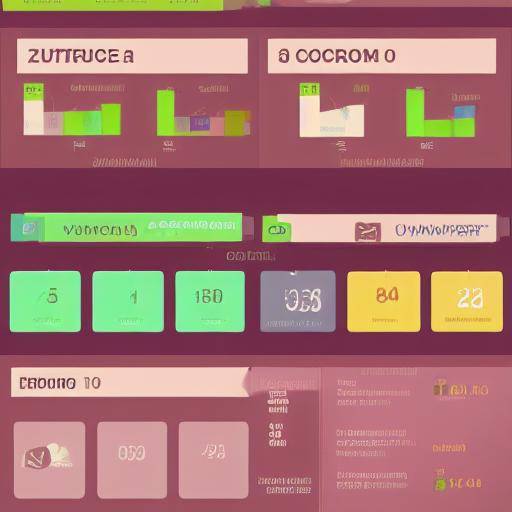
Laughter and humor are a fundamental part of human experience. They not only provide moments of joy and fun, but also have a significant impact on our emotional well-being. In this article, we will explore in depth the transformative power of laughter and humor, focusing on its ability to reduce stress. From its history and evolution to its role in emotional well-being and practical strategies to incorporate them into everyday life, we will discover how laughter and humor can be powerful resources to improve the quality of life.
History and Background
The laughter, as an expression of joy, has been valued throughout the history of humanity. From ancient civilizations to today, humor has played a crucial role in culture and society. In ancient Greece, for example, laughter was considered to be a sign of approval of the gods, while in the Middle Ages, the buphones and comedians had an important role in the court, relieved tensions and offering entertainment.
The modern understanding of laughter and humor from a scientific perspective has expanded enormously. In the nineteenth century, scholars began to investigate the physiological and psychological effects of laughter, concluding that it had a positive impact on the mental and physical health of people.
Deep analysis
Laughter and humor present a wide range of benefits for emotional well-being and stress reduction. According to scientific studies, laughter can activate the release of endorphins, hormones related to the feeling of well-being. In addition, it improves cardiovascular function, reduces the level of stress hormones such as cortisol and strengthens the immune system.
In the psychological aspect, humor acts as a coping mechanism against stressful situations, facilitates conflict resolution and promotes the creation of social ties. In everyday life, humor allows us to gain perspective, reduce emotional tension and distance from problems.
Comprehensive review
The application of laughter and humor in the therapeutic context has also gained ground. Risotherapy, for example, has become a popular tool to improve mental health, relieve stress, anxiety and depression. In addition, the incorporation of humor into working environments has proved effective in increasing productivity, improving communication and strengthening teamwork.
Despite the many benefits, it is also important to recognize that inappropriate use of humor can lead to misunderstandings or discomfort. It is essential to consider the context and sensitivities of people before resorting to humor in any situation.
Comparative analysis
By comparing laughter, emotional well-being and stress reduction, we can identify how these aspects are intertwined and complemented. Emotional well-being encompasses a broader spectrum of mental health, including emotional management, self-esteem and internal balance, while laughter and humor provide concrete tools to strengthen this aspect.
On the other hand, stress reduction is a direct result of promoting emotional well-being. Rise and humor act as natural shock absorbers of tension, which in turn decreases the stress burden we experience in everyday life.
Practical Tips and Accessible Tips
To incorporate laughter and humor in the pursuit of emotional well-being and stress reduction, it is useful to adopt certain practices. Some strategies include participating in activities that generate laughter, such as watching comedies, reading humorous books or attending comedy shows. In addition, the practice of laughing at oneself and looking for the humorous side of the country's situations can be especially beneficial.
- Participate in group activities that encourage laughter, such as risotherapy sessions or comedy clubs.
- Cultivate the habit of looking for the humorous side of everyday situations and share fun moments with friends and family.
- Incorporate laughter and humor as coping tools in times of stress, seeking the balance between seriousness and enjoyment.
Perceptions of Industry and Expert Reviews
Within the medical and therapeutic community, the role of laughter and humor in mental health has gained recognition and acceptance. Professionals of psychology, psychiatry and occupational therapy have expressed their support for the incorporation of humor as a complementary strategy in the treatment of various mental health conditions.
In the business sphere, more and more companies recognize the importance of fostering a positive working environment that includes promoting laughter and humor. The productivity, the morality of the employees and the cohesion of the team have been identified as areas that are strengthened by the presence of a work environment of humor and well-being.
Case Studies and Real Life Applications
Case studies demonstrate the effectiveness of laughter and humor in a variety of contexts. From the implementation of rhesotherapy programs in health centers to the integration of humor into educational and business environments, the benefits are evident. In hospitals, there has been a reduction in the recovery time of patients participating in rhsotherapy sessions, and in schools and companies, a mood has helped to improve the motivation and satisfaction of participants.
Future Trends and Predictions
As awareness of the positive impact of laughter and humor continues to grow, an increase in the integration of these practices into diverse environments is expected. Innovation in the field of rhesotherapy and the development of digital tools to facilitate access to humorous content are just some of the trends predicted for the future.
Conclusions and FAQs
In short, laughter and humor play a vital role in promoting emotional well-being and reducing stress. Their physiological, psychological and social impact makes them valuable resources to improve the quality of life. By fostering a balanced approach that includes moments of joy and fun, we can strengthen our ability to face everyday stress and cultivate greater emotional satisfaction.
Frequently asked questions
**1. Why is laughter considered beneficial to mental health?**The laughter triggers the release of endorphins, hormones associated with happiness, and reduces levels of stress hormones such as cortisol, which contributes to better mental health.
**2. What differences exist between emotional well-being and stress reduction?**Emotional well-being encompasses broader aspects of mental health, while stress reduction focuses on reducing emotional tension caused by stressful situations.
**3. What are some practical strategies to incorporate laughter into everyday life?**See comedies, share fun moments with friends and family, participate in group activities that encourage laughter, and cultivate the ability to find the humorous side of everyday situations.
**4. Is there any precaution in the use of humor as a coping mechanism?**It is important to consider the context and sensitivities of people, avoiding the use of humor that may be offensive or inappropriate in certain situations.
**5. How could humor have a positive impact on the working environment?**The mood in the working environment can improve the morale of employees, strengthen team cohesion and increase productivity.
**6. What is the future role expected for laughter and humor in promoting emotional well-being and reducing stress? Rise and humor are expected to continue to be recognized as effective tools to improve mental health and reduce stress, with a greater emphasis on their integration into therapeutic, educational and labour environments.
In conclusion, laughter and humor have a significant impact on our emotional health and stress reduction. By understanding and appreciating its transformative potential, we can take advantage of these qualities to improve our quality of life. By integrating laughter and humor consciously into our lives, we can cultivate a sense of joy, emotional balance and resilience in the face of daily tensions.
With a deeper look and a pragmatic approach, laughter and humor can become powerful allies in the pursuit of emotional well-being and stress reduction.
With this article, we hope to have provided a solid understanding of the importance of laughter and humor in promoting emotional well-being and reducing stress. By fostering a holistic approach to our mental and emotional health, we can open ourselves to new possibilities of growth, satisfaction and emotional resistance.
Remember, laughter is contagious, but its positive effects are even more contagious. So laugh freely and enjoy the benefits for your emotional well-being and your stress reduction!
With this article, we hope to have provided a solid understanding of the importance of laughter and humor in promoting emotional well-being and reducing stress. By fostering a holistic approach to our mental and emotional health, we can open ourselves to new possibilities of growth, satisfaction and emotional resistance.
Remember, laughter is contagious, but its positive effects are even more contagious. So laugh freely and enjoy the benefits for your emotional well-being and your stress reduction!






















































